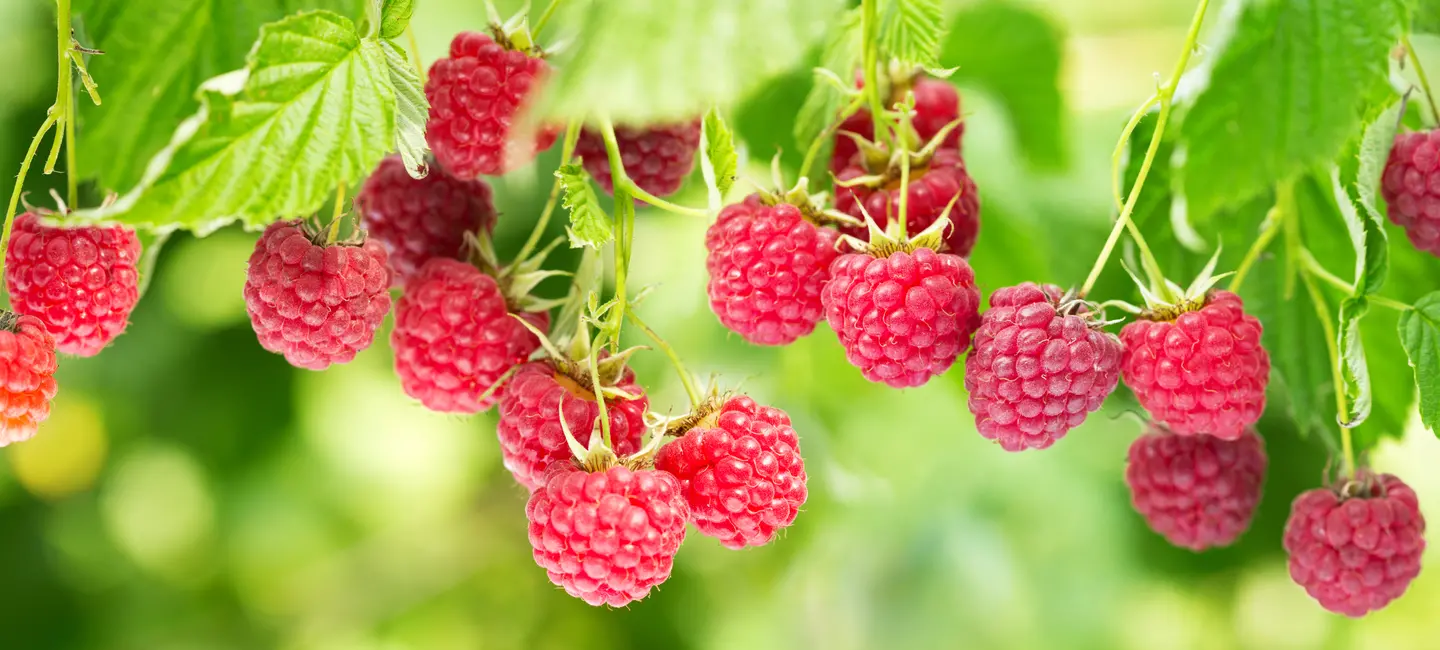
Red raspberry (Rubus idaeus) plant produces the widely eaten, sweet fruit. Red raspberry fruit and leaf have been used as medicine for centuries.
The chemicals in red raspberry might have antioxidant effects and help relax blood vessels. They might also cause muscles to contract or relax, depending on the dose and the muscle involved. This is the theory behind red raspberry's use in easing labor and delivery.
People use red raspberry for labor, diarrhea, diabetes, and many other purposes, but there is no good scientific evidence to support these uses.
Don't confuse red raspberry with black raspberry, blackberry, or raspberry ketone.
Is It Effective?
There is interest in using red raspberry for a number of purposes, but there isn't enough reliable information to say whether it might be helpful.
Is it Safe?
When taken by mouth: Red raspberry fruit is commonly consumed as a food. It is possibly safe when taken in larger amounts as medicine. Red raspberry fruit is usually well-tolerated. There isn't enough reliable information to know if red raspberry leaf is safe or what the side effects might be.
Special Precautions & Warnings:
Pregnancy: Red raspberry fruit is commonly consumed as a food. Red raspberry leaf is possibly safe when taken by mouth as medicine during LATE pregnancy under the direct supervision of a healthcare provider. But don't take it on your own. It is likely unsafe to take red raspberry leaf as a medicine earlier in pregnancy. It might act like the hormone estrogen. This might harm the pregnancy.
Breast-feeding: Red raspberry fruit is commonly consumed as a food. There isn't enough reliable information to know if it is safe to take red raspberry leaf when breast-feeding. Stay on the safe side and avoid use.
Hormone-sensitive conditions such as breast cancer, uterine cancer, ovarian cancer, endometriosis, or uterine fibroids: Red raspberry leaf might act like estrogen. If you have any condition that might be sensitive to estrogen, don't use red raspberry leaf.
Insulin
Interaction Rating=Moderate Be cautious with this combination.
Insulin decreases blood sugar levels in the body. Red raspberry leaf might also decrease blood sugar levels in the body. Taking raspberry leaf along with insulin might cause blood sugar levels in the body to be too low. Monitor your blood sugar closely. The dose of your insulin might need to be changed.
Medications that slow blood clotting (Anticoagulant / Antiplatelet drugs)
Interaction Rating=Moderate Be cautious with this combination.
Red raspberry leaf might slow blood clotting. Taking red raspberry leaf along with medications that also slow blood clotting might increase the risk of bruising and bleeding.
Herbs and supplements that might slow blood clotting: Red raspberry leaf might slow blood clotting and increase the risk of bleeding. Taking it with other supplements with similar effects might increase the risk of bleeding in some people. Examples of supplements with this effect include garlic, ginger, ginkgo, nattokinase, and Panax ginseng.
There are no known interactions with foods.
Red raspberry fruit is commonly eaten on its own and processed into jams and other foods.
As medicine, there isn't enough reliable information to know what an appropriate dose of red raspberry fruit or leaf might be. Keep in mind that natural products are not always necessarily safe and dosages can be important. Be sure to follow relevant directions on product labels and consult a healthcare professional before using.
Framboise, Framboise Rouge, Framboisier Rouge, Framboisier Sauvage, Frambuesa Roja, Raspberry, Rubi Idaei Folium, Rubus, Rubus buschii, Rubus idaeus, Rubus strigosus.
Information on this website is for informational use only and is not intended to replace professional medical advice, diagnosis, or treatment. While evidence-based, it is not guaranteed to be error-free and is not intended to meet any particular user’s needs or requirements or to cover all possible uses, safety concerns, interactions, outcomes, or adverse effects. Always check with your doctor or other medical professional before making healthcare decisions (including taking any medication) and do not delay or disregard seeking medical advice or treatment based on any information displayed on this website.
© TRC Healthcare 2024. All rights reserved. Use and/or distribution is permitted only pursuant to a valid license or other permission from TRC Healthcare.
